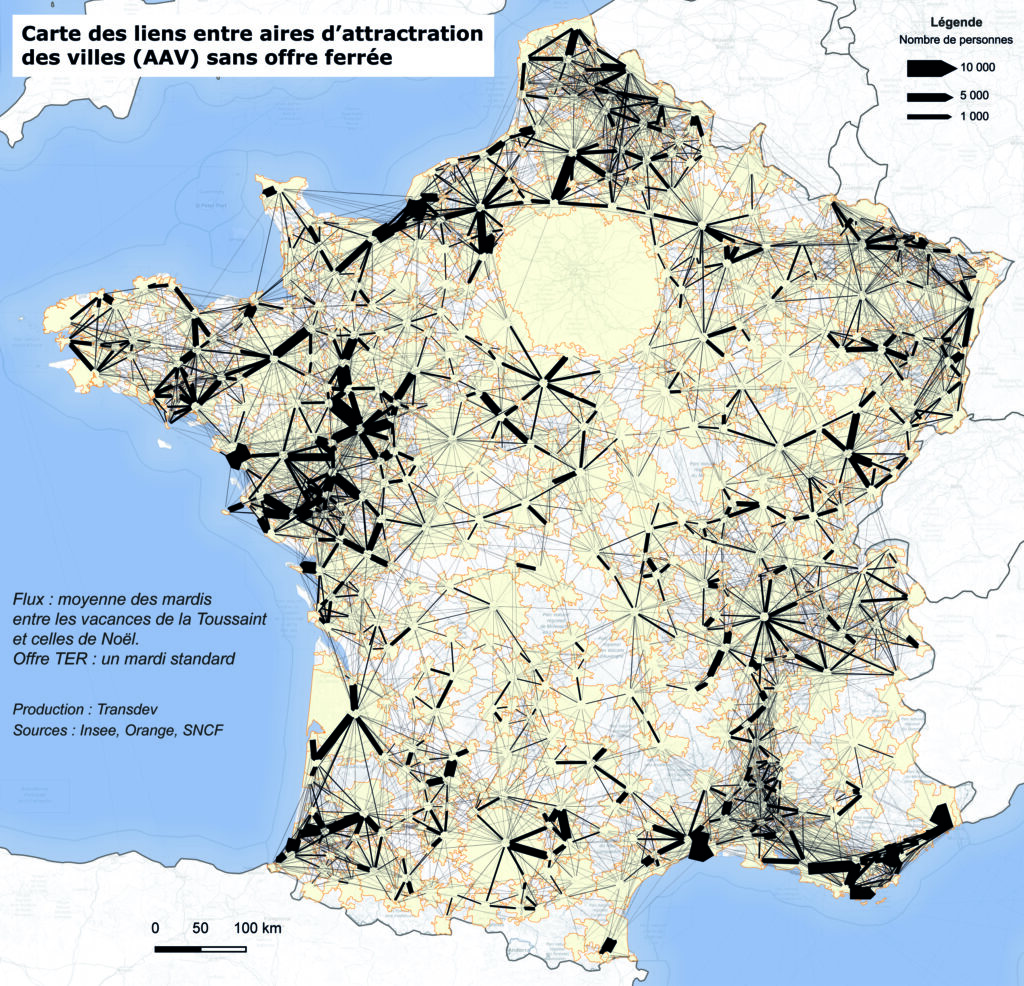This platform is dedicated to analyzing and understanding the challenges related to territories and mobility, generating ideas, and proposing concrete actions to address the threefold challenge of transport decarbonization, social equity, and public spending efficiency.
Mobility is a societal issue that requires a multidisciplinary approach, incorporating not only transportation flows but also geography, economics, psychology, sociology, urban planning, and history. This approach enables the development of objective and reliable diagnostics, leading to tailored solutions that account for the diversity of territories. In line with this philosophy, Geonexio brings together leading scientific experts to analyze territories and mobility and develop effective, acceptable, and financially viable solutions.
Press release
Download the press releaseOn February 5, Geonexio unveiled a groundbreaking study conducted in collaboration with Jacques Lévy, the 2018 Vautrin Lud Prize laureate (often referred to as the Nobel Prize in Geography), using mobile network data. The findings mark a significant breakthrough, offering insights into how people in France occupy space and allowing for the quantification of population flows.

Geonexio means 'better understanding to take better action'. For the first time, we can precisely measure the territorial pulse and movement patterns of people across France, from regions to suburban areas and urban centers, tracking fluctuations by the hour, day, month, and year. The initial results are striking and confirm two key priorities in France: strengthening alternatives to cars for intercity travel and improving connections between suburban areas and urban hubs. We see the work of Geonexio as a common good, and we will regularly share our findings with the broader community focused on territories and mobility.
Edouard Hénaut, CEO of Transdev France
Transdev co-finances Geonexio’s scientific research and contributes its expertise in mobility analysis, data processing, and public transport system management.

